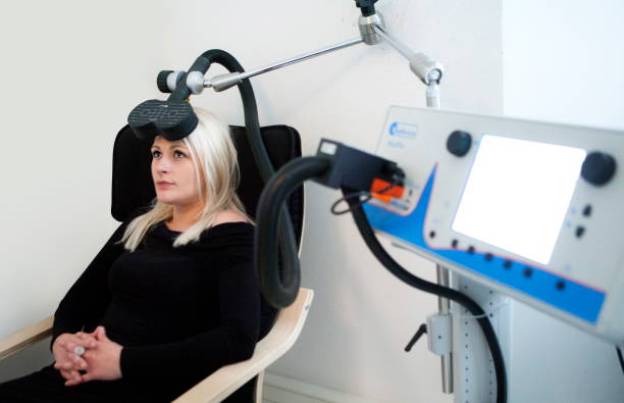
![]()
A hospital in Dublin is offering a new treatment for depression, the first of its kind in Ireland.
St. John of Gods has introduced RTMS, a non-invasive outpatient treatment for people who have not responded to other methods.
It uses magnetic pulses to stimulate specific brain regions, promoting the brain's ability to form new connections and regulate mood.
Around 21 million people in Europe experience depression, with higher rates among women in Ireland, compared to men.
Consultant Psychiatrist at St John of Gods Hospital, Simon Mitchell explains how RTMS works. ''It works by using electromagnetic pulses to activate parts of the brain that are underactive when people are depressed. Its a very safe, outpatient treatment so there's no anesthetic or anything like that, and people can drive to and from the treatments which are on consecutive weekdays for four to six weeks.''
How Does rTMS Work
rTMS works by inducing ‘neuroplasticity,’ the brain’s ability to form new neural connections. For treatment-resistant depression (TRD), we stimulate the left prefrontal cortex to restore function and alleviate symptoms.
In cases of depression with agitation or anxiety symptoms, a protocol targeting the right prefrontal cortex to reduce its overactivity may also be used. Both treatments can be delivered in one session, depending on the patient’s needs.
Who Can Benefit from rTMS?
This treatment is available to patients experiencing treatment-resistant depression that has not responded to traditional therapies such as medication or psychotherapy. To qualify, you need to be referred by your doctor or psychiatrist, who will continue to oversee your care in collaboration with our rTMS team throughout your treatment.
Recovery Rates
Research indicates that rTMS is associated with substantial recovery rates for resistant-treatment depression. Studies report that 50% of patients experience symptom relief, often observable within the first few weeks of treatment.